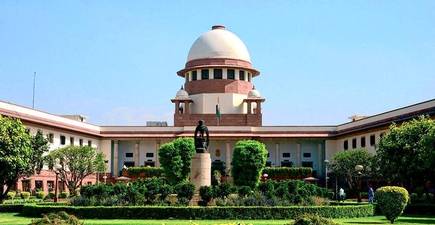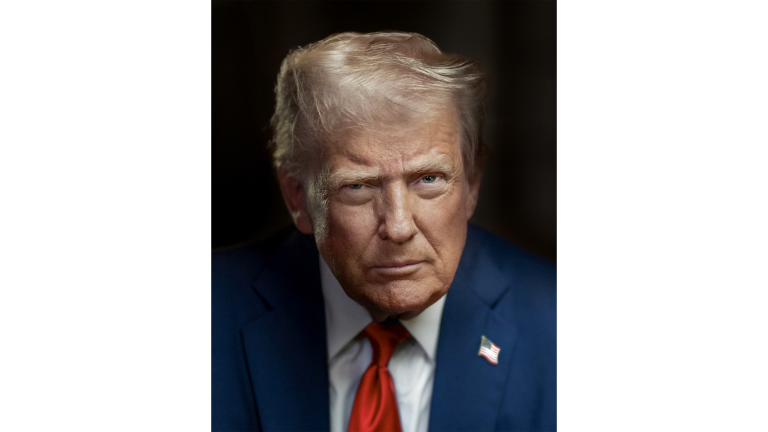
The Supreme Court of India
New Delhi: 18 days after the Delhi Deputy Chief Minister Manish Sisodia got bail from the Supreme Court in the Delhi liquor policy case, K Kavitha also got bail in the same case on August 27, 2024. A day later, on August 28, the aide of the Jharkhand Chief Minister Hemanth Soren, Prem Prakash, who was in jail in connection with a land scam case, also got bail from the Apex Court.
These three cases, taken together, are indicative of the Supreme Court’s clear message to all courts and investigating agencies like the Central Bureau of Investigation (CBI) and the Enforcement Directorate (ED) that “Bail is the rule and jail is the exception” as per Article 21 which deals with the fundamental right to life and liberty.
The Supreme Court made it clear this week in in two separate judgements that even in PMLA (Prevention of Money Laundering Act) cases bail is the norm, in releasing prisoners as well as under trials. In other words, the Apex Court made it clear that bail is the norm even under special laws like PMLA, UAPA ( Unlawful Activities Prevention Act) and others.
This is a significant judgement by the Supreme Court in the backdrop of the case involving Manish Sisodia, who was in prison for 18 months under PMLA in the Delhi liquor policy case without any bail. For the last few months, even Delhi Chief Minister Arvind Kejriwal has been in jail facing PMLA charges in the Delhi liquor policy case. After the release of Sisodia, K Kavitha and Soren’s aide under the new guideline of “ bail is the rule”, will Kejriwal also stand a chance to be out of jail? In fact, the Apex Court observed that even in heinous offences, bail could be obtained.
K Kavitha of BRS was arrested by the ED on March 15, 2024, and later the CBI arrested her on April 11 from Tihar jail. Kavitha was denied bail by the trial court to Kavitha several times and by the Delhi High Court twice during her more than five months imprisonment. Even before the Supreme Court, the lower courts as well as the ED and the CBI vehemently argued that Kavitha was an influential politician and there was every possibility of evidence being tarnished once she was out of prison. Hence, she should be denied the bail. But while granting bail to her, the Supreme Court pulled up the ED and the CBI and questioned their fairness in investigations. The Court maintained that there should be a “fair process” for undertrials accused under stringent laws, struggling for release.
Referring to the arguments by the ED and the CBI that Kavitha had “tampered with the evidence” as she deleted messages and destroyed her phones, the Supreme Court observed that deleting mobile phone messages is normal and is not a crime. It further said that destroying the evidence from phones from time to time is a “normal behaviour” and this could not be considered “a criminal act unless supported by other evidence”. Significantly, here, the Court observed that after investigations are completed there is no point in denying bail to an accused. It said that if the quality of the evidence was to be made part of the bail order, it would impact the trial.
In all the above three cases, the Apex Court made it clear that the application of the bail principle in all money laundering cases be applied in a fair manner respecting the spirit of Article 21 of the Constitution. The Court said that undertrials be granted bail after fulfilling the twin conditions under PMLA— that the accused is prima facie not guilty and he is not likely to commit any crime if released on bail. While granting bail to Hemant Soren’s aide, the Court observed that a statement made by another accused about another case while being in custody would not be admissible.
The Supreme Court judgement is significant, in the backdrop of arrests of top political leaders and VIPs, for the last 4 to 5 years, under PMLA. So far the Apex Court has imposed strong restrictive bail conditions under PMLA. For quite some time, Opposition parties have been making a big issue over money laundering, that the government is using investigating agencies like CBI and ED as a political weapon to browbeat their political rivals deliberately under the guise of PMLA. Top Congress leaders Sonia Gandhi and Rahul Gandhi were arrested last year by the ED in a National Herald money laundering case. However, they got bail easily. Former Union Minister P Chidambaram was also arrested inside Tihar Jail by the ED in July 2020 in an INX foreign funding case. Though he got bail from the Supreme Court, he had to spend 106 days in prison.
Over the years several leaders have been arrested in money laundering cases including Laloo Prasad Yadav of Rashtriya Janata Dal, Bhupesh Baghel of the Congress Party, Abhishek Bannerjee of Trinamool Congress, Sanjay Raut of Shiv Sena to name a few. The lower courts and High Courts were very stringent against the accused in the money laundering and got bail only after sulking in jail for several months.
It may be recalled that PMLA was enacted in 2002 to fight against the criminal offence of legalising income/ profits from an illegal source. It enables the government to confiscate the property earned from the illegally gained proceeds. But over the years, the PMLA came under a lot of criticism, for not granting bail easily and the very criminal justice system came under the scanner. It is being argued by legal luminaries that a man on bail has a better chance to prepare or present his case than one remanded in custody. And if public justice is to be promoted, mechanical detentions should be demoted.
*Senior journalist






